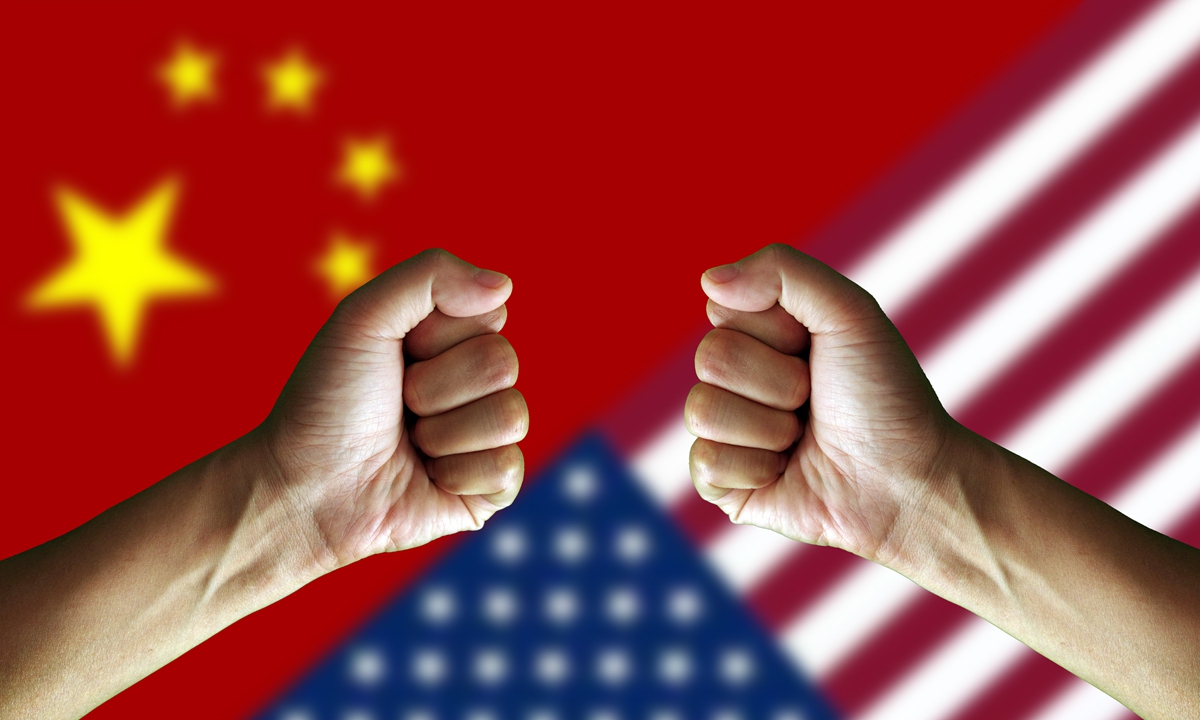
Photo: VCG
The Chinese side has continuously protested against the unjust treatment and expulsion of Chinese students with valid visas by US border enforcement officers, as well as the sudden searches conducted by the US Department of Homeland Security at Chinese-owned companies in the US. The US harassment has intensified. Is this a sign of accelerating "decoupling" from China? Is the US still suitable for Chinese students who want to study abroad? Can Chinese companies still invest in the US? These questions have become increasingly serious.Since the Trump era, the US attitude toward Chinese individuals has drastically changed, with scrutiny and prevention measures even affecting Chinese Americans. An executive order signed by Trump in 2020 required US universities not to admit Chinese students "who are or have been associated with the PLA." However, in subsequent implementation, this discrimination has continued to expand, and top STEM programs in US universities have become less willing to accept Chinese students. In addition, the US Department of Homeland Security recently executed a search warrant at the Ohio-based US subsidiary of Qingdao Sunsong, a Chinese automobile parts manufacturer. This company is just the latest victim.
Nowadays, many daily necessities made in China have been replaced in US supermarkets by products from other Asian and Latin American countries, and China-US trade declined by 11.6 percent in 2023. "Decoupling" from China is an unwavering obsession of Washington's extreme political elites. Their views continue to spread and have produced some tangible consequences in American society. However, how the "decoupling" between the US and China develops still depends, to a considerable extent, on how China reacts and interacts with it.
The US political landscape is much more complex than China's, as everyone can see. The Texas governor openly confronts the federal government and even the Supreme Court. So, imagine what a state in the US can do if it wants to cause trouble for Chinese companies and citizens. Sometimes, it is difficult for outsiders to judge who is representing the US. After more than 40 years of extensive exchanges between China and the US, the intertwining of interests is not mere rhetoric. Although China-US trade has declined, it still amounted to $664.4 billion in 2023, making it one of the largest trade relationships between countries in the world. It can be said that in order to undermine the "decoupling" plans of Washington's extreme political elites, China has two trump cards: its huge market size and manufacturing industry chain that can produce everything with high quality and low cost.
Due to the public outcry from radical figures such as some American lawmakers, the concept of "decoupling" has fueled anti-China sentiment and led to some individuals who have no direct interests in China-US relations to rashly and recklessly take action against China due to the low cost of mistreating China. This is the reason why US law-enforcement agencies conducted sudden searches of Chinese companies and some US airport customs officials arbitrarily harass Chinese inbound personnel. These actions are driven by the rising anti-China sentiment in American society and the tightening of US precautions against China, as well as the arbitrariness of specific law-enforcement agencies and personnel. Determination of the nature of each specific incident requires consideration of multiple factors.
Responding to and retaliating against the actions of US institutions, a comprehensive assessment should be conducted, and oversimplification should be avoided. If the US raises tariffs on Chinese products, China must respond with equal countermeasures, as this is a common practice in international trade wars. The harassment of Chinese inbound students at Washington Dulles International Airport and the sudden searches of Chinese-funded enterprises by the US are barbaric and illegal acts. China's response and retaliation should not target inbound American students and American-funded enterprises in China, as doing so would undermine China's business environment and the living conditions for foreigners in China. We need to find and shape alternative tools for countermeasures.
Regarding studying abroad in the US, the US government's expulsion of Chinese students upon arrival at US airports has increased the risk for Chinese students of not being able to graduate successfully in the US. This will further reduce the willingness of Chinese students to study in the US. This, in itself, constitutes a form of retaliation because liberal arts departments in American universities still welcome self-funded Chinese students. In some liberal arts departments, about one-third or even half of the students are self-funded Chinese students from the Chinese mainland. In recent years, the quality of studying abroad in the US has declined. Most students who studied in the US during their undergraduate or even high school years have less competitiveness in the job market compared to graduates from domestic universities. Washington Dulles International Airport in the US has mistreated Chinese students. I believe that the airport will ultimately harm the wallets of many liberal arts departments in American universities.
China must further improve its economy and continuously expand its market size. This is the fundamental tool for us to counter the anti-China policies and actions of the US. In the long run, our market expansion must be faster than that of the US. This will be most detrimental to the radical political elites in the US. Strong development and market expansion speed will be the decisive factors in the comprehensive competition between China and the US.
The author is a Chinese media professional. opinion@globaltimes.com.cn


